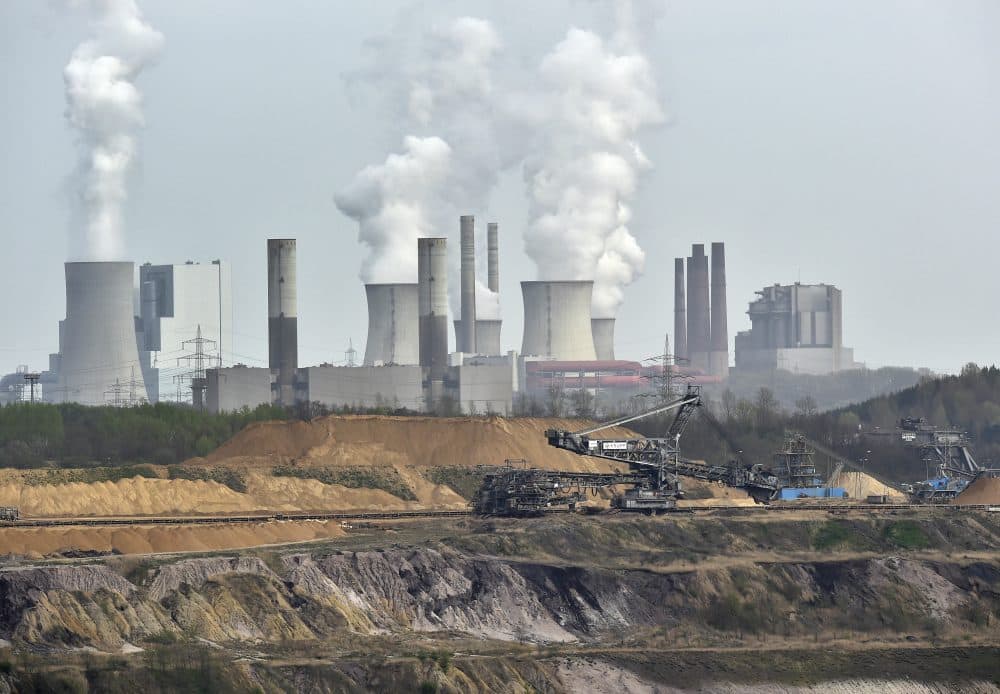Advertisement
Global Warming Will Cause More People To Die By Suicide, Study Predicts

New research from Stanford University finds that higher temperatures are leading to more suicides. And by 2050, the study predicts, thousands of additional suicides will have occurred in North America alone due to the rising temperatures caused by climate change.
Published in the journal Nature Climate Change, the study examined decades of county-level suicide data — nearly 1.5 million observations spanning all of the United States and Mexico — as well as data that tracked monthly temperatures in each area. The team used data going back as far as 1968.
After controlling for potential confounding factors, such as income level, air conditioning and gun ownership, the authors found that "the relationship between temperature and suicide is roughly linear" — suicide rates go down in cooler months, and up in warmer ones.
According to the research, a monthly rise in temperature of 1 degree Celsius leads to “about a 1 to 2 percent increase in the suicide rate,” says Dr. Marshall Burke, assistant professor of earth system science at Stanford University and lead author of the study.
The team also wanted to explore the link between temperature and mental well-being generally, not just suicide. In order to do this, they turned to Twitter, where they analyzed “nearly a billion tweets,” says Burke.
After looking at how often the location-tagged tweets used depressive language as well as the temperature of the areas tweeted from, the scientists found “a pattern that's strikingly similar” to the suicide data, Burke says: Higher temperatures meant worse mental health.
Unlike some results of climate change that are mostly confined to coasts — like rising sea levels or increased hurricane intensity — Burke says poorer mental health will be a burden shared across populations.
Since “everyone is going to experience temperature increases,” he says, “the toll from mental health could be incredibly large.”
In the future, Burke hopes to expand the geographical scope of his research to “build a global picture” of climate change and its worldwide mental health effects.
Last year, research from the University of California Berkeley reported that higher temperatures led to more suicides among farmers in India. In such cases, economic hardship due to crop loss was deemed the culprit.
However, the reasons behind the increased suicides during hotter times in North America are still uncertain. Burke says there is “emerging physiological evidence” that the parts of the brain involved with regulating emotion are also used when dealing with heat. While “there is a plausible link here,” he says, the mechanism linking heat to suicide remains an open question.
Dr. Sam Myers, director of the Harvard’s Planetary Health Alliance, calls the paper an “important piece” of climate change research.
“It's the most exhaustive study I know of that's really looked at this relationship between temperature and suicidality in North America,” he says. “Short of turning on and off the sun,” this paper does as much as possible to prove cause and effect, he says.
Myers, who leads an alliance of over 120 institutions spanning 30 countries that focuses on planetary health, says climate change and related human-caused disruptions to natural systems impact “almost every dimension of human health.”
As for what should be done to combat climate change, Myers says: “What each individual needs to do is go out and find each other, and create a collective force.
“We need a movement in this country, more than anywhere, that makes it unacceptable for political leaders to […] not meet their climate obligations, or to deny that climate change is even a real thing,” he says.
Here are links to suicide prevention resources: